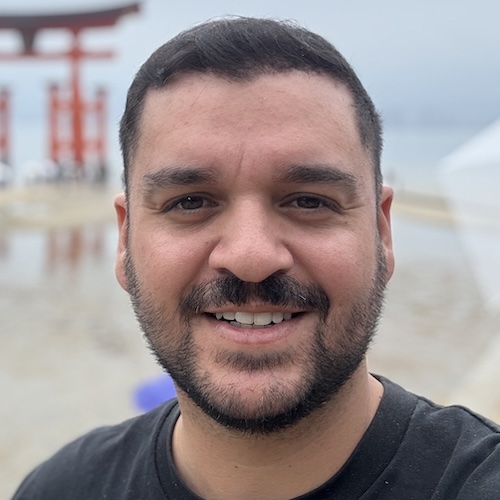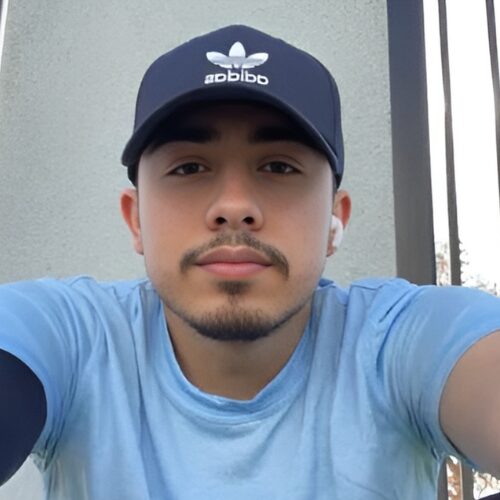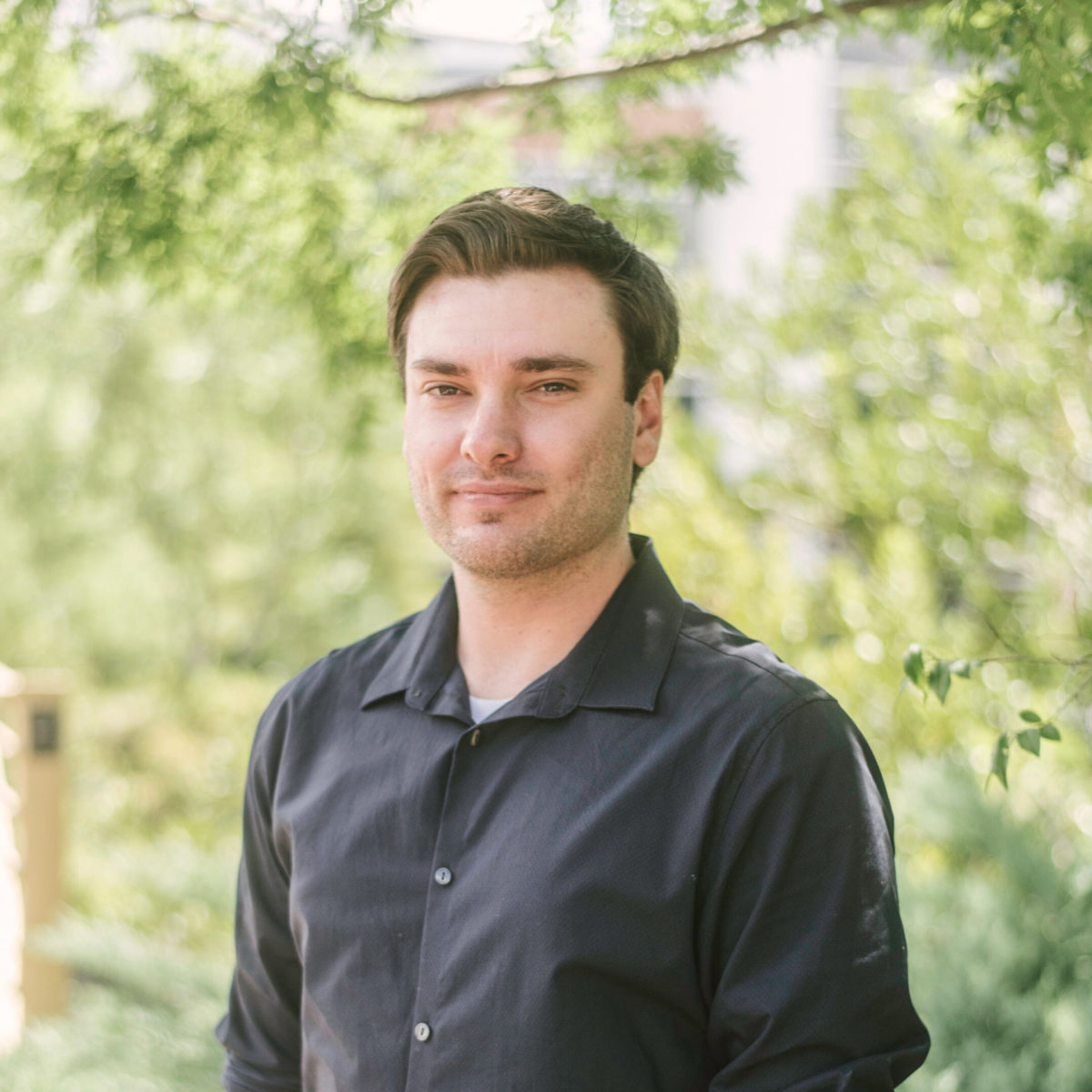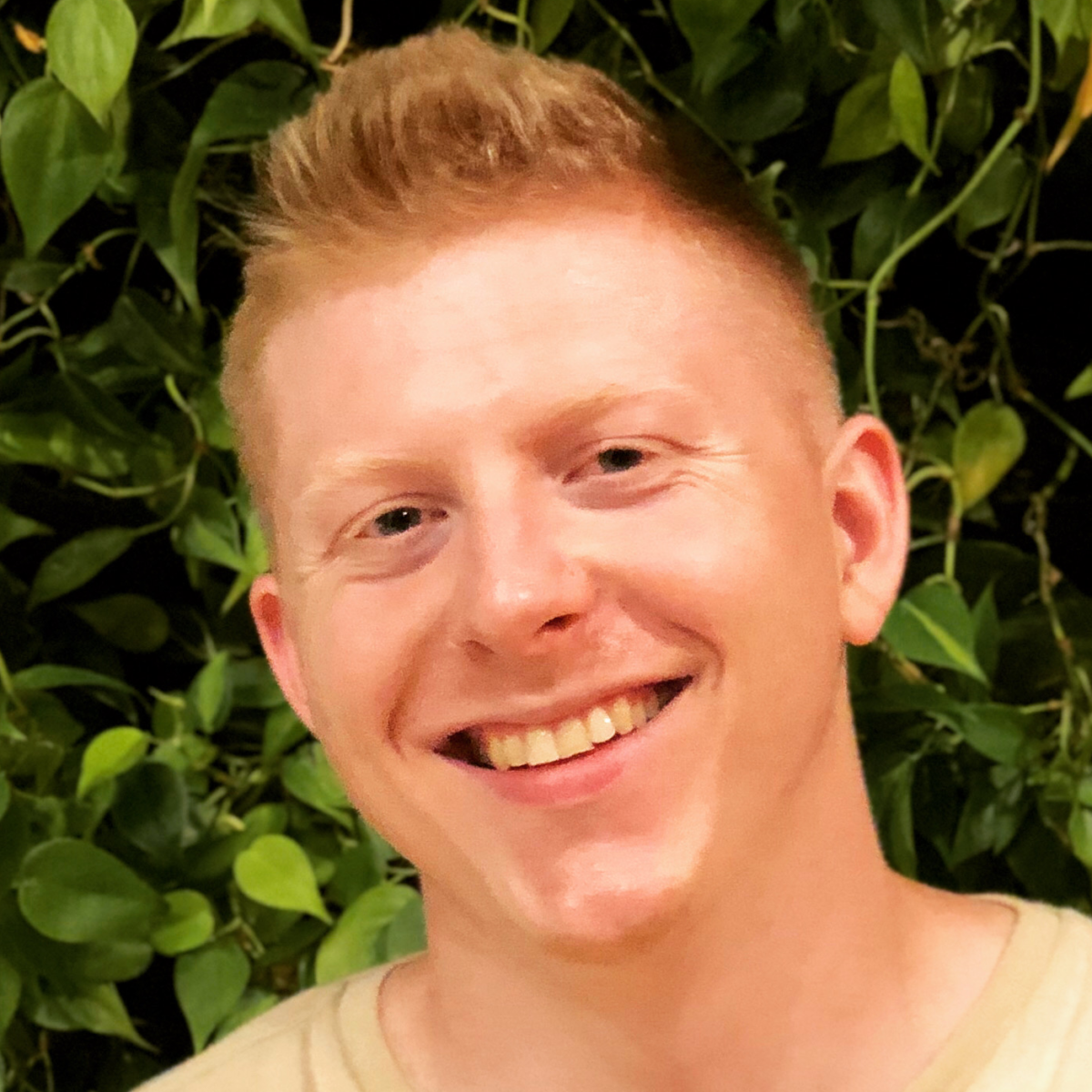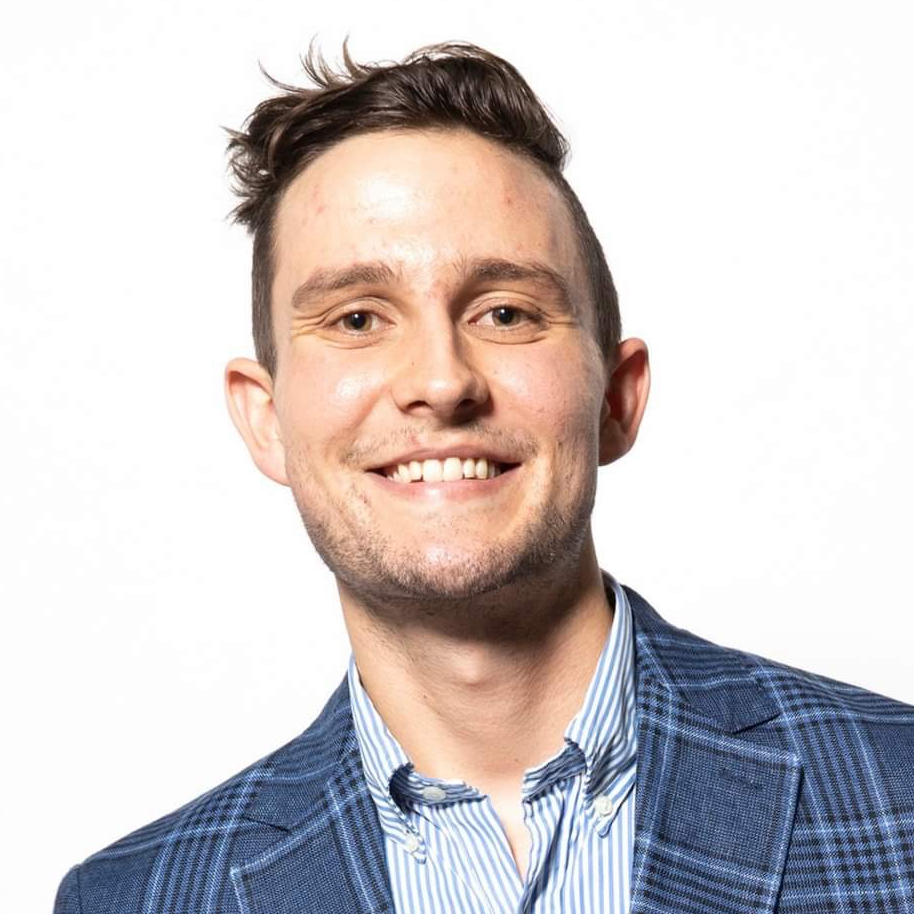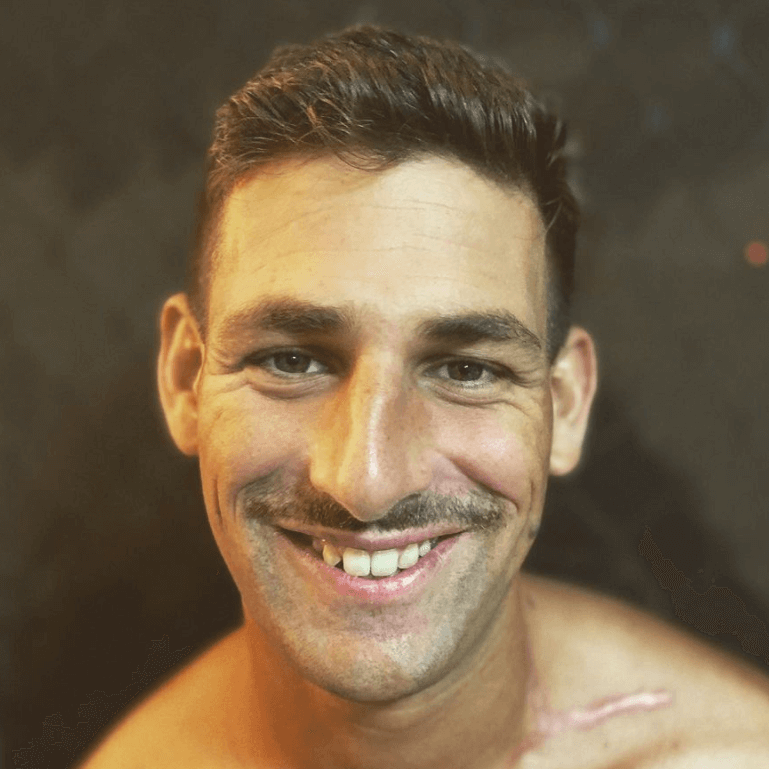Mikael’s Stage 1 Non-Seminoma Testicular Cancer Story
Mikael shares his stage 1 non-seminoma testicular cancer story and undergoing multiple surgeries, radiation therapy, and hormone therapy.
Explore his story below where Mikael also highlights the importance of having a caregiver during cancer treatment, the impact of the diagnosis on his relationship, work life during treatment, and transitioning to survivorship. Thanks for sharing your story, Mikael!

- Name: Mikael H.
- Diagnosis:
- Testicular Cancer
- Non-Seminoma
- 1st symptoms:
- Tired and low energy
- Swollen and hard testicle
- Treatment:
- Surgery
- Removal
- Two reconstructions
- Radiation therapy
- Hormone therapy
- Testosterone pill everyday
- Surgery
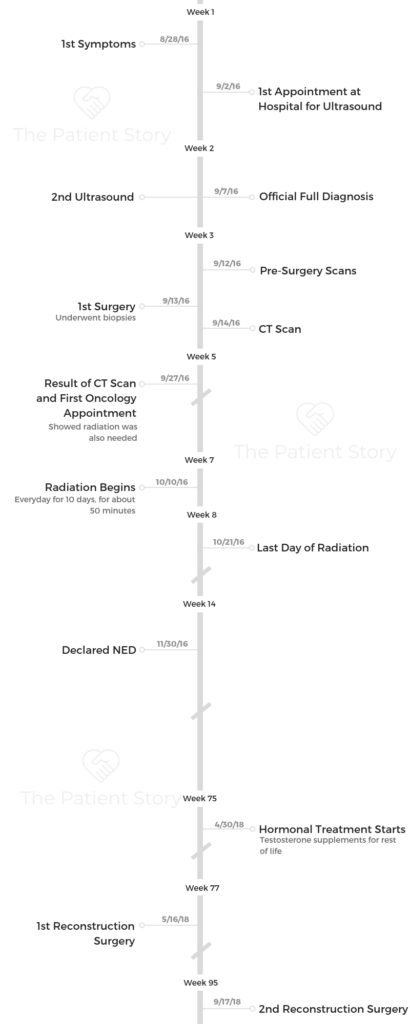
- Diagnosis
- Treatment Plan
- Surgery
- Reconstruction Surgeries
- Radiation Therapy
- Hormone Therapy
- Quality of Life
- Describe your life after cancer (survivorship)
- What was the worst experience you had during treatment?
- What helped you the most during times of stress?
- How important is it to have a caregiver
- How did the cancer affect your relationship?
- Any advice for cancer patients on how to deal with loved ones during treatment?
- Describe work life during treatment
- Describe your financial situation during and after treatment
- Any other advice for other patients
This interview has been edited for clarity. This is not medical advice. Please consult with your healthcare provider for treatment decisions.
It just makes it easier to come through some of the rougher times to find the joy in even some of the smaller things and surround you with people that bring you joy and can make it a good experience.
Mikael H.
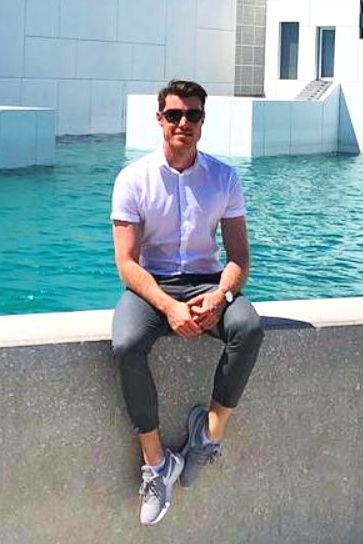
Diagnosis
What were your first symptoms?
Well in hindsight, over the summer, I felt very tired and low on energy. I actually just thought that I was stressed because I was writing my master’s thesis.
But after a couple of months, I started to think that well, maybe I was missing some vitamins or something. So I planned to go see a doctor at some point.
But then one Sunday afternoon, I felt that one of my testicles was suddenly very hard and had grown quite a lot. So of course it raised some red flags, and the next morning, I called my doctor to ask if it was something that I should give a couple of days to see if the swollenness would go down, or if I should come and see him.
He asked me to come right away. And from then on, it went fast; went into the hospital for a lot of different tests and scans and stuff, and then a little more than a week later, I got the diagnosis.
Describe the diagnosis
I remembered I had a very good friend who’s also a doctor, and she was by my side through the period of the diagnosis because my boyfriend was traveling at the moment and he couldn’t be there. She was also there when I got the diagnosis.
I remember that everything pretty much just went black and I didn’t hear everything.
She was quite good support and asked some of the questions until I kind of got myself together to start listening again. It also made it possible for me to get out of the room and sit down on a bench, outside in the sun, and have a chat about what happened at the consultation when I got the diagnosis.
She could retell what the doctor had said, but also tell with her knowledge as a doctor from the test results that they had said it really how it was.
They hadn’t tried to make it easier for me or tried to scare me to make it serious. They had really told me straight out how the situation was.
»MORE: Patients share how they processed a cancer diagnosis
How did you tell your loved ones?
From the diagnosis on, it was all about telling my family and my boyfriend abroad that this is the situation: I got cancer.
My parents were told a few days before that I was going through this stage of finding out whether or not I had cancer, and they were actually the only ones knowing that I was going through this. But then the day after, I collected five very close friends at a bar, and we sat down, had a beer.
They actually thought that my boyfriend and I were going to announce that we were getting married, but that was not the case.
I told them that I got cancer and at that moment I wanted them to be involved, but aside from that, I would like to get over the surgery and such before I started telling a lot of people about my situation. A few days later, I told the rest of my family, including my close family, what I was going through.
Treatment Plan
How and where did you decide to get treatment?
Here in Denmark, our healthcare system is very effective and very professional, so you just count on that. I was just assigned to a hospital and went there, because I trust that all of the hospitals are just as good as the others. I didn’t have to choose myself whether or not to go to another hospital.
If there had been more waiting time, I would have had the option to go to another hospital, but that was not the case. I was diagnosed on a Wednesday, and the following Tuesday I got the surgery. It was about as fast as it could be.
Whether or not to get surgery and other treatment, I just trusted them.
I wouldn’t dare to jeopardize not trusting them at that moment, to be honest.
Were you ever told to take a watch and wait method or were you always in the middle of treatment?
I was not put on hold at any point. For example, for the hormonal treatment I was put a bit on hold for the first year because they hoped that my body would start producing enough hormones itself, but that’s the only case where I have been told to wait.
Especially because when you first start with hormonal treatment, you stop the body from trying itself because you get enough. So, of course, they were aiming for me to do it the natural way instead of getting it as a supplement. But that was the only case where I was put on hold.
I was followed the entire time. For the first year I went to the hospital at least once a month to have a consultation and a follow-up with tests and such. I haven’t felt left on my own at any point for the last 2 1/2 years, not at all.
Were there any big surprises during treatment?
I’m not sure. I think what surprised me the most was probably my own reaction to everything, that I was actually quite positive and really continued to make the best of it.
I was also surprised the tougher part of it actually comes after the surgery and radiation, after you have gotten the message that you are cancer free.
Because then you have to deal with how the surroundings react at the fact that you have had cancer, and the fact that it’s not just over with that, that it really.
It continues to be in your mind, and I think it changes your mindset for good.
That part is sometimes difficult for the surroundings to understand, but aside from that I wasn’t surprised by any of it. I also think that I was – I won’t call it naïve – but I really trusted the healthcare system, so I just kind of handed in my body for them to do their work and then after the treatment I took my body back and continued with what I could do from there.
I wouldn’t interfere with their decisions as long as the treatment was going on. I didn’t feel at any point that it was needed to even question what they were doing, to be honest.
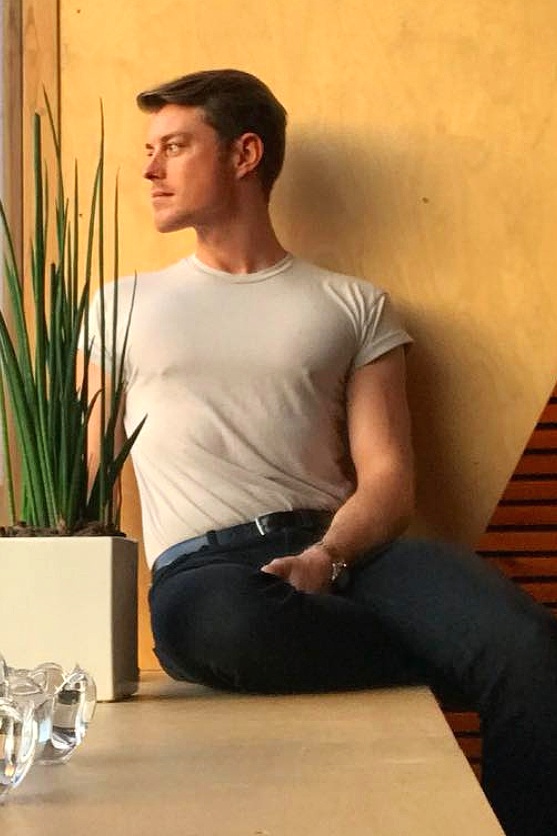
Surgery
Describe the surgery and preparation beforehand
I went to the hospital the day before to get the pre-surgery tests, and was assigned to the room that I was going to check into the following day. It took about three to four hours, and then I went home and had a normal evening. The next morning, my doctor friend picked me up and drove me to the hospital.
I was in surgery around 9:00 in the morning, and it took a bit more than three hours, because here they do the biopsy during the surgery. Then I woke up and I was sick after the surgery.
I stayed at the hospital, and the following day, I got a CT scan to see if they had gotten it all. When they could tell from the scan that they got it all, I was told that I could go home. So I did all the recovery at home afterwards.
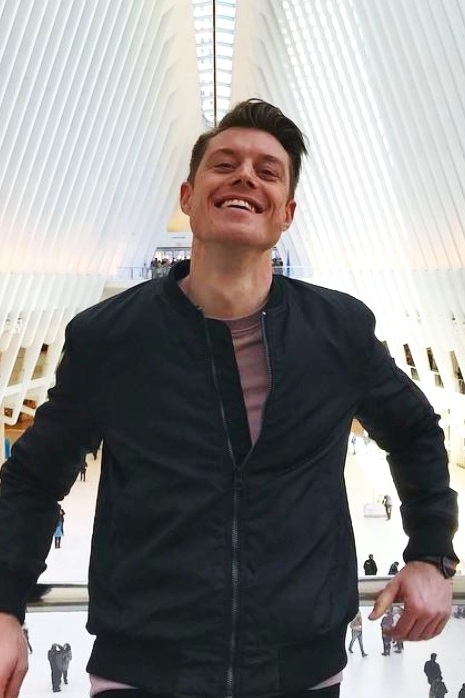
How long did biopsy results take?
I think it takes around an hour, because they just put you under, open up, take the testicle, go in, take a piece of the testicle, and send it to a lab. They test it, and then the lab calls back to say if it’s cancer or not.
If it is cancer, they remove the testicle. If it’s not cancer, they put the testicle back and close the wound. So it’s quite effective.
How long did recovery take?
Well, because they go through the lower stomach and the muscles, it took a couple of weeks, because the wound had to heal, and the stitches were really irritating. But after that, I was actually pretty good to go.
I also decided to speed up the recovery, so from the first day I got home, I did small walks outdoors every day, and I made them longer and longer.
Of course I was walking super slowly and half bent forward, because my stomach hurt and the wound hurt.
But I was walking every day and just taking everything slow. I wasn’t allowed to carry anything heavy for the first couple of months. So I guess you could say that until then, I wasn’t back to anything normal.
How did you feel after surgery (side effects, etc)?
Apparently it turned out that I’m allergic to morphine. So I got some side effects from that. And then of course I was in pain.
From being put under for more than three hours, it had some effect on my body and I was exhausted and had to recover from that as well. So it was just being sick from the surgery and the morphine.
Reconstruction Surgeries
Describe your reconstruction surgeries
The first reconstruction actually went fine, but the prosthetic was not placed as the doctor and I wanted, so we did a second surgery where they took it out and put a new one in, and placed it better than the first time. That’s why I had a second reconstruction.
What side effects did you experience following the second reconstruction surgery?
It’s just the same as the first two surgeries. They went through the old scar – I had to heal afterwards and was stitched up for the first couple of weeks so I couldn’t move as freely as normal.
Besides that, I didn’t have any side effects.
Actually, I went to the hospital in the morning for the two reconstruction surgeries and I, both times, took the bus home afterwards on the same day. Taking the whole situation into consideration, it was quite easy, I have to say.
Radiation Therapy
How did you start radiation therapy?
During the surgery, they do a biopsy of the testicle where they can tell there’s something wrong. They also take a small biopsy of the other testicle and send it to the lab. I got back to the hospital for a consultation around a month after my surgery or something, and there they said
they could see some pre-stages of cancer in the biopsy of the other testicle, and therefore they wanted to put me into radiation therapy to prevent the cancer from growing.
Describe your radiation regimen
I went every day for ten days. It was actually quite easy. I had a pre-radiation consultation, and they did all the preparations of measuring what to attack and what not to attack and made sure that I was going to lie the same position every time.
I came in every morning, and it took around 50 minutes from entering the hospital to going to the radiation and coming back out. Then I come back the following day again, and continue that for 10 days.
What were side effects you experienced?
It didn’t hurt at all, but I got extremely tired. It really drained my energy, and the last couple of days of radiation, I slept for almost 16 hours a day. It took close to half a year to get my former energy level back after the radiation.
What did you do to help with the side effects?
I was just very keen on working out, exercising, getting fresh air, and really pushing myself to do the stuff that makes me happy and gives me good energy.
But of course for that period, my priorities changed. I didn’t go out as much as I used to, and I just prioritized to really do everything that didn’t drain me more of energy.
»MORE: Read other patient experiences with radiation therapy
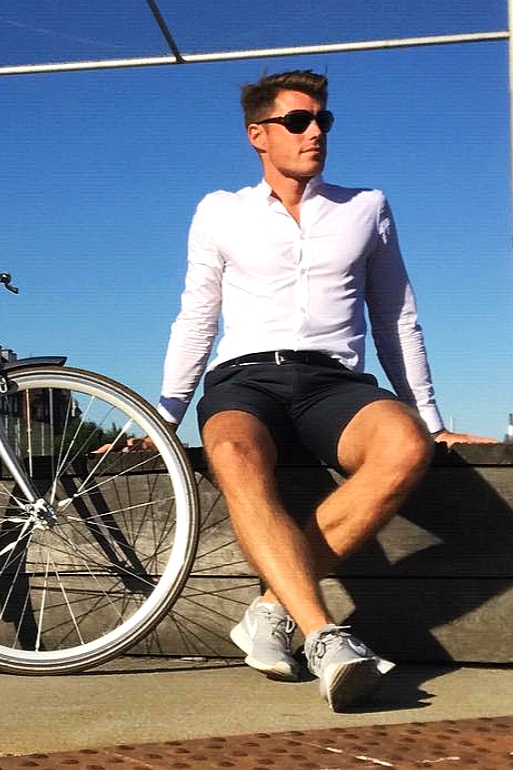
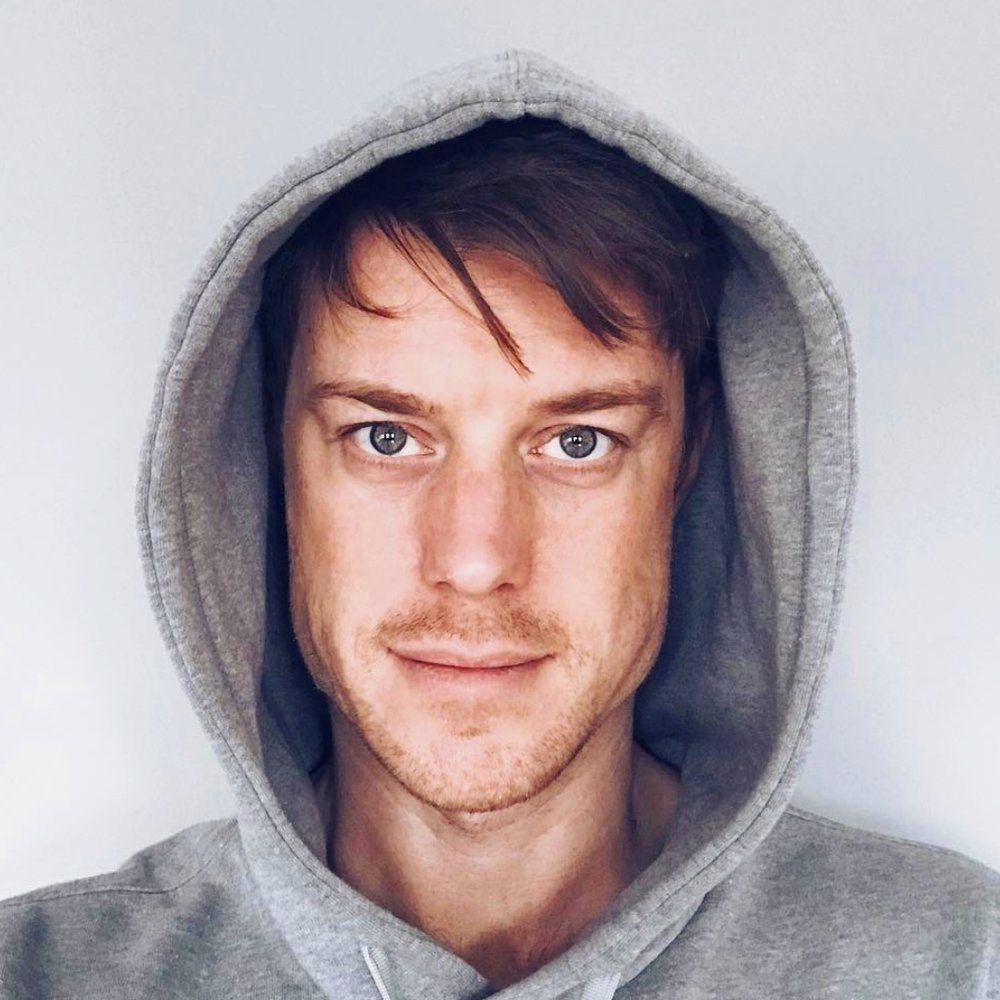
Hormone Therapy
Describe your hormone therapy treatment
They removed one testicle and they gave the other one radiation. Because cancer attached to the hormonal cells, those cells are the ones that they are giving radiation therapy.
Therefore, my own production of testosterone was very low and pretty much killed.
My body couldn’t really recover and get to a level where the doctors wanted me to be.
I also continued to be quite tired and I had some of the side effects from not getting enough testosterone.
So after a year, they wouldn’t take the chance anymore of waiting for my own body to start producing enough, and therefore I got the supplement of testosterone.
I have to take it every day for the rest of my life.
Did you experience side effects?
Not at all. On the contrary, I could feel the effect of getting the treatment quite fast. I got more energy, I felt happier, and I had more lust for sex; so it was actually quite a big change and very fast, which was a bit not scary , but not in a bad way.
It was really an eye-opener to feel what a difference it can make when your body is lacking of something so essential as your hormones.
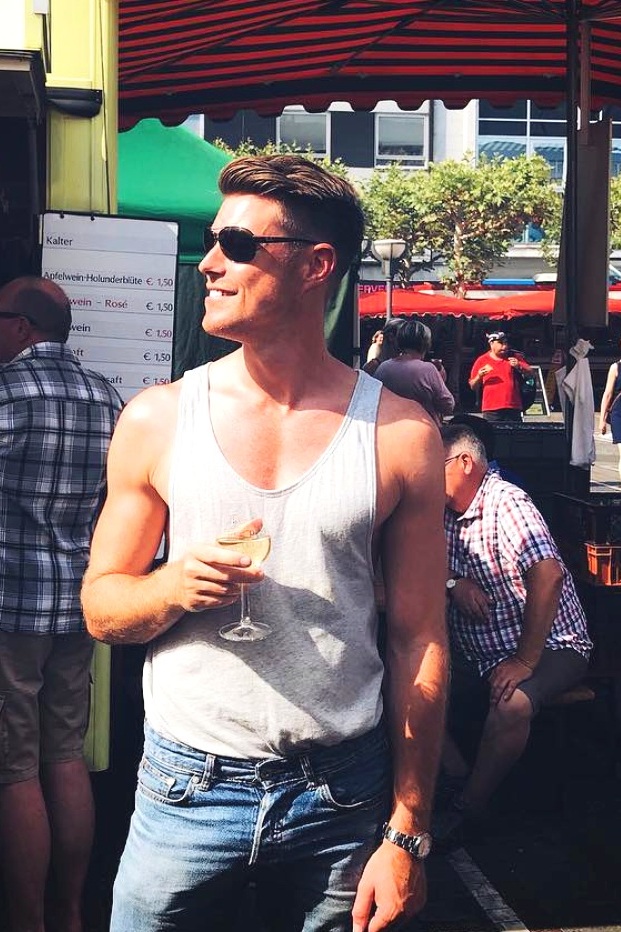
Quality of Life
Describe your life after cancer (survivorship)
I think having cancer is hard for the surroundings to understand. The fact that I do have cancer and it needs to be treated, and then you are told that you are cancer free and everybody thinks, “Okay, now we can move on.”
But the fact is that for the first two years at least, I was still scared every time I felt tired for more than what is normally expected. Whenever I had a stomach ache, when I had a headache, or if my skin was itching, I was afraid that the cancer had come back and had spread.
I think that fear is quite difficult to put into words for people to understand, because it’s not always rational. I could even tell myself sometimes that it wasn’t rational, but it didn’t change the fact that I was still scared of cancer coming back.
And also because people are, of course, happy for me that I’m done with the cancer, they are very keen on the idea of moving on; but I think the process of going through treatments and processing the fact that you’re actually sick and you’ve got a disease you can potentially die from – you don’t have time to process all these emotions and reactions and feelings.
So, all of that comes back afterwards, and you start to process and handle all the emotions that you have saved up for a period of time. You have to do that at the same time your surroundings expect you to move on and continue with your life as it was before.
That is quite tough and it can be very difficult to put into words how you’re feeling. Especially the parts that are not very rational because I can easily say that I was not rational all the time, but it didn’t change the fact that I got scared.
What was the worst experience you had during treatment?
I always say now that cancer is not something that you can opt out of, but I really had a good experience. I really didn’t have a bad experience with cancer.
The worst part for me was probably the fact that I was quite sick after the surgery for the first day. Afterwards, I think it’s more the mental part. For me, it took two weeks to get rid of cancer from my first sign.
It took two years before I got the final reconstruction surgery and got my body back to something as normal as it can be after that situation. So I think it’s more the fact that the tough part is actually after getting rid of cancer.
What helped you the most during times of stress?
I got the surgery on a Tuesday, and the following Saturday I chose to make a post on my social media to tell everybody that I have cancer, and that I already had the surgery.
From then on, I continued to involve my surroundings on social media – involve them in my situation and how the process was going, that now I went to the hospital, and now I was told that I have to get radiation, and so on, and so on.
But I also continued to live my life and celebrate my life.
I think it made it very easy for my surroundings to handle because I was so open about it. They knew how I was feeling and it actually made it possible for me to go out, and to party, and go to social events without spending the first 30 minutes talking about where am I now and what my situation is.
Because people were already involved and informed, they could instead ask, “How is the Master’s thesis going?” “What about applying to jobs?” “How’s the relationship going?” and “Where are you traveling next?” and so on.
The fact that I was very positive and could actually joke about it now and then made it possible for my surroundings to not fear to be not sorry enough for me.
I normally describe it as an “upgoing” spiral, because it gave them more energy to be there for me when I needed a shoulder to lean on or a deeper talk, instead of me being really sad about it and dragging my friends and social surroundings down that spiral.
How important is it to have a caregiver
I think it’s super important. I couldn’t have done it without my friends and my boyfriend. My parents live in the countryside of Denmark, so it’s not easy for them to be with me every day. All my siblings are living abroad at the moment, so they were not in Denmark.
I had to rely on my friends, and they were very good. They made sure that I was not alone at the hospital when I had my radiation therapy. They actually made a schedule for all my therapies to make sure that one friend was following me every one of those days, and made sure that I was not alone.
My doctor friend that I mentioned earlier was there with me the entire time, and kept supporting me, and driving me to the appointments and surgeries. Of course, I had my boyfriend at home to make sure that stuff was taken care of instead of me having to worry about those things.
So definitely it’s important. I couldn’t have done it without my friends and they were really my safety net because they made sure that I didn’t have to think about anything. They got together and really made sure that I wasn’t alone at any point.
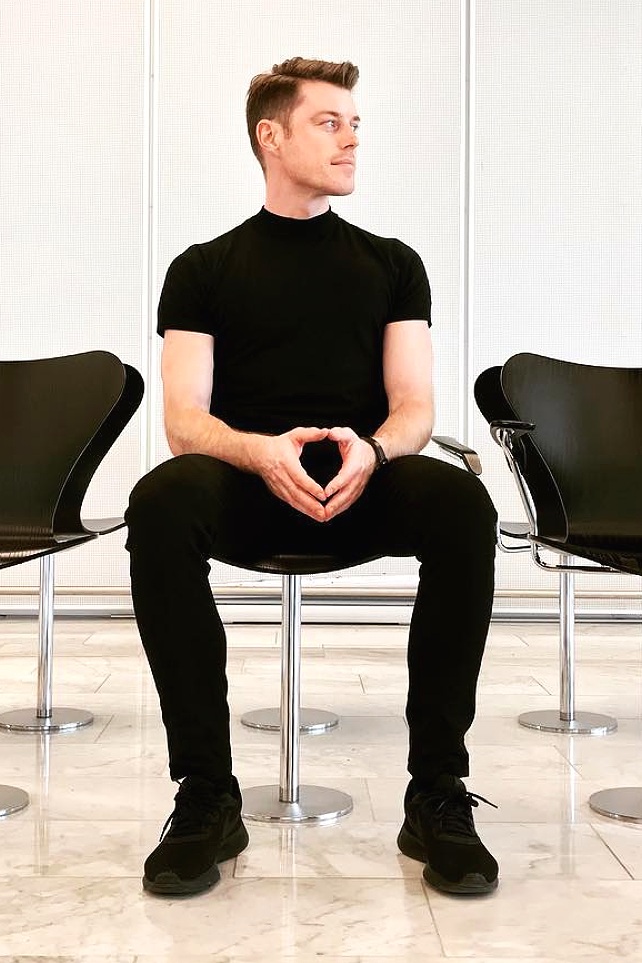
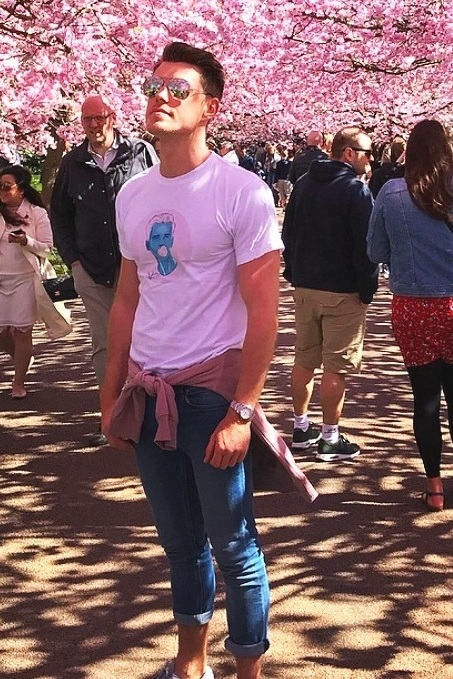
How did the cancer affect your relationship?
It’s tough. I have to be honest – just speaking for my own sake – I think it was very tough for my boyfriend to try to be strong for me but at the same time of course he was also scared. I think that he felt that he couldn’t show that.
So it took some time to kind of find a level where I was not expecting him to be more sad or showing that he was sad. He was in this limbo of trying to find a level where he was strong enough.
I think we both were forced to really be honest and forward about how we were feeling right here, right now because my emotions were really going from low to high in that period of time.
I really understand that it’s difficult for a partner to navigate in that because I might need support and comfort one day and the next day I said, “Let’s go out and celebrate that I’m still alive.”
We were not in that kind of trouble at any point but I think it also took some effort from me to support him, and remember to support him, and remember to understand that it was also a tough period for him, and a scare for him to potentially lose me to cancer.
I think after the first couple of weeks we got to that period where we were like, “This is not completely working,” and we had a good, long talk about it.
From then on, we just decided to be very honest and very forward all the time about how we were feeling right now, and also being more observant and more keen on listening to his needs, not just my needs just because I was the one with cancer.
»MORE: 3 Things To Remember If Your Spouse/Partner Is Diagnosed With Cancer
Any advice for cancer patients on how to deal with loved ones during treatment?
I would say be open. When you are a cancer patient, there are so many uncertain things, so many factors that you don’t have the answer to.
The surroundings, and especially your loved ones, they have even more questions because they can’t feel how you’re feeling in your body. They can only try to read you, and try to read your mind, and look at you and see if you look uncomfortable or in pain. But they don’t even have half of the answers that you got as a cancer patient.
It’s really about being super open and honest to make it easy for them to navigate in your disease.
Describe work life during treatment
I have to say the two weeks from seeing my private doctor the first time to when I got the surgery was actually the two most productive weeks of my entire master’s thesis. I really think it helped me take my mind off from cancer and just concentrate on something else.
I even had my thesis with me at the hospital when I got the surgery. I think for me it was really my rock at the time because that was really something that I could control. As I said before, the whole cancer thing I put into the hands of the doctor.
But the master’s thesis I was still the master of. I also think I was very keen on getting it done even though I was sick. A part of me was very keen on the fact that I wanted to get it done so if I had to die from cancer, I wanted to die with a degree. I didn’t want to die uneducated, and it sounds strange, but I think for me that was something to hold on to during that period.
»MORE: Read more on how others dealt with work after a cancer diagnosis
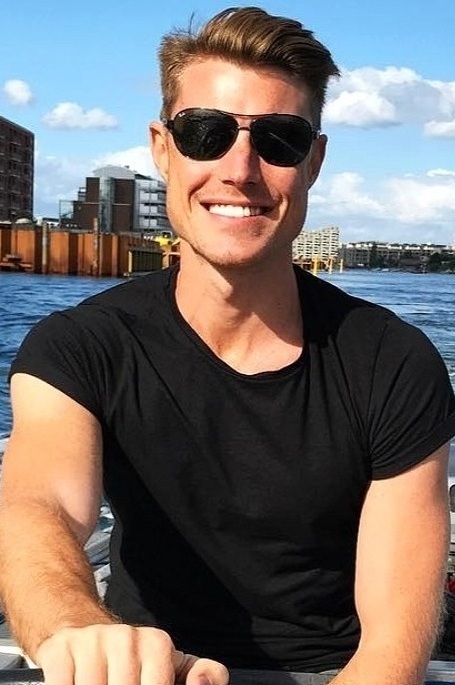
Describe your financial situation during and after treatment
Well, I have to say I know that I’m very privileged that I live in Denmark because I didn’t have to pay anything. As a student, you also get student support from the government so I got that amount of money during my entire time of having surgery and radiation. I was registered as a student because I was writing my master’s thesis, so financially, I couldn’t feel any difference at all.
It can be inspiring but also give some kind of support to hear others’ experiences to make it easier for you to relate to your cancer and prepare yourself for what is coming.
I see why there is a need for sharing stories like I do now, but also I do know that you have networks or support groups that could give you some answers, especially at a time where you start feeling alone because your surroundings don’t understand everything.
Then it’s nice to have other people that have been in the same situation.
I ended up being a part of a youth network with younger cancer patients in Denmark. I found quite a lot of the support there that I couldn’t entirely find with my friends because they didn’t understand what I was going through. So that’s more or less the experience that I try to share with other cancer patients that I meet – really
reach out to other cancer patients because they can understand you and they can give you some of the answers.
Any other advice for other patients
No, it really can sound a bit naïve and a bit too positive, but you can try to be positive about it. I said during the entire time that tears couldn’t heal me and of course laughter couldn’t either, but laughter could make it easier for me to handle some of the tougher periods. It’s not about laughing it all off and making fun of everything because it is serious.
But it just makes it easier to come through some of the rougher times to find the joy in even some of the smaller things and surround yourself with people that bring you joy and can make it a good experience.
I think really try to make the best of it because it is okay for you to feel sorry about yourself and sorry for the fact that you have cancer. But for me, I feel as if you have a choice whether or not it should take the entire control of your life.
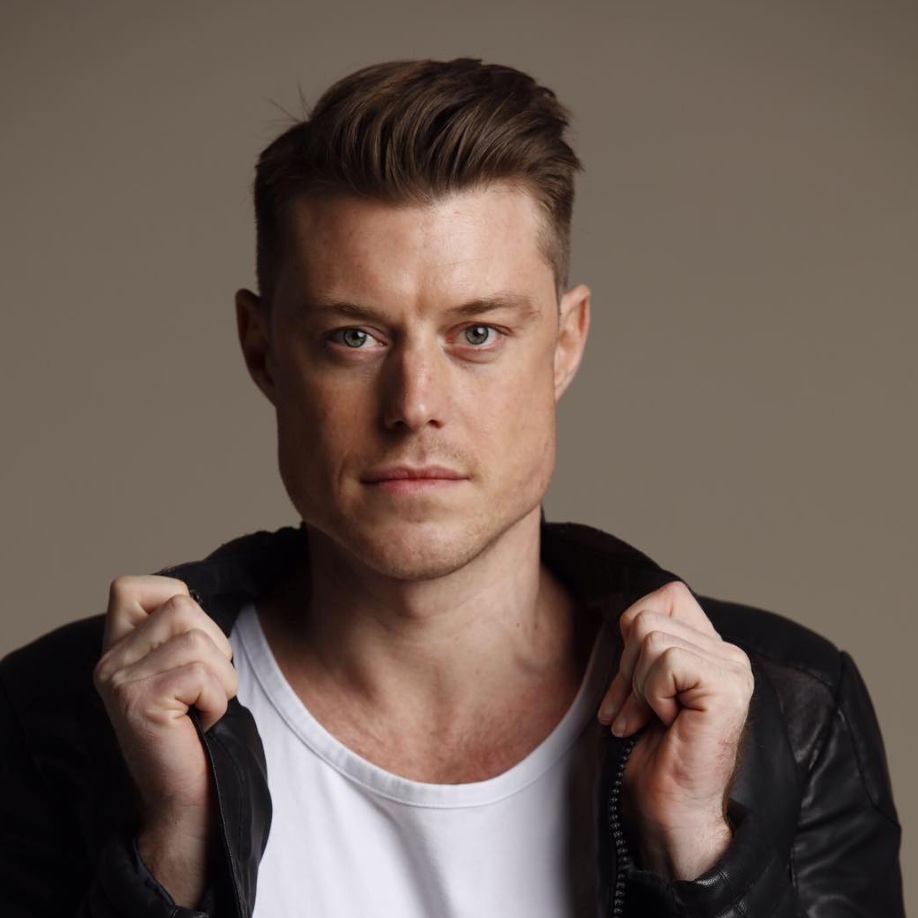
Inspired by Mikael's story?
Share your story, too!
Testicular Cancer (Non-Seminoma) Stories
Matt B., Testicular Cancer (Embryonal Carcinoma, Metastatic)
Symptoms: Severe lower back pain, loss of sensation in left leg, dizziness, fatigue, night sweats, heart complications
Treatments: Surgeries (retroperitoneal lymph node dissection or RPLND, orchiectomy, liver resection, hernia repair surgery), chemotherapy
Josh T., Testicular Cancer, Stage 3A
Symptoms: Pain in his chest, lower back, and abdomen; shortness of breath, especially during exercise; mass found on one testicle
Treatment: Chemotherapy
Steven C., Testicular Cancer (Non-Seminoma), Stage 2B
Symptoms: Enlarged left testicle, tenderness in left testicle, lump in back (retroperitoneum)
Treatments: Surgery (orchiectomy and retroperitoneal lymph node dissection), chemotherapy
Matthew O., Testicular Cancer (Non-Seminoma), Stage 3C
Symptoms: Fatigue, one swollen testicle
Treatments: Chemotherapy, surgery
Hugo T., Testicular Cancer (Non-Seminoma), Stage 2B
Symptom: Pea-sized lump on right testicle
Treatments: Surgery (removal of right testicle, lymph node resection), chemotherapy
Steve L., Testicular Cancer (Non-Seminoma), Stage 3C
Symptoms: Grape-sized tumor on neck; hip and pelvis pain; tumor on right testicle
Treatments: Chemotherapy, surgery (removal of right testicle, lymph node resection, and tumor dissection in the neck)
